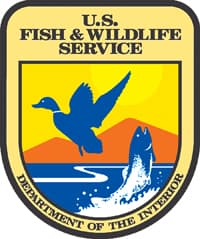New Fish and Wildlife Service Policy Ensures Integrity of Public Communications, Protects Right of Employees to Speak About Their Work
OutdoorHub 06.29.12

For the first time in more than two decades, the U.S. Fish and Wildlife Service has comprehensively updated its media policy to reflect the agency’s commitment to transparency and the communication of accurate scientific, technical and wildlife management information. The policy strengthens and protects both the integrity of public information disseminated by the Service and the right of employees to express their personal opinions about the work of the agency.
Fish and Wildlife Service Director Dan Ashe, who as the Service Science Advisor led the agency’s push to develop scientific integrity policies, said the revised media policy represents another step in the Service’s effort to foster a culture of open inquiry and debate.
“We can’t accomplish our wildlife conservation mission without the support and engagement of the public and our partners. That support in turn rests on people’s ability to trust the accuracy and integrity of our public communications,” said Ashe. “This new policy establishes our expectations for open and ethical communications, and ensures that our communications professionals, scientists and other employees understand the rights and responsibilities it conveys.”
The new Service policy is consistent with the Department of the Interior’s revised policy, which was finalized in the spring. The Service policy, contained in three chapters that have been integrated into the Service Manual, clearly defines the circumstances under which employees may speak on behalf of the agency in an official capacity, and establishes policies and procedures for the review and approval of official agency communications to ensure accuracy and consistency.
The Service has taken past action to protect the integrity of the agency’s scientific and technical information, establishing a policy on scientific integrity to ensure that scientific, scholarly and technical articles and reports produced as a result of official activities submitted to or published in peer-reviewed publications are not subject to agency review.
The new media policy does not alter or affect these measures. But it does expand on them by requiring agency communications to contain accurate scientific and technical information that has been reviewed by appropriate Service scientific and technical experts prior to distribution. It also restates the right of scientific and technical experts to speak about their work, and to review agency communications describing that work prior to dissemination.
The policy makes other changes designed to support the integrity of Service communications. For example, sections of the policy restate and expand prohibitions on using agency funding for publicity, and require all print and audiovisual products produced with Service funds to clearly disclose the agency’s sponsorship.
A specific chapter of the Service Manual codifies the right of employees to speak about their work and the work of the Service in a personal capacity, as long as they make it clear that their opinions may not necessarily reflect those of the agency.
While the policy protects the right of employees to express their personal opinions, it does not permit the disclosure of information that is exempt from disclosure under the Privacy Act and the Freedom of Information Act or as otherwise restricted by statute, regulation, Executive Order, or other Executive Branch or Departmental policies or directives. Examples of such information include classified or procurement sensitive information, and information subject to privilege, including deliberative, pre-decisional information or attorney-client communications.
The revised policy is contained in three manual chapters in the Information and Communications Series: Part 115, Chapter 1: Official Public Communications – General Policy and Procedures; Part 115, Chapter 2: Other Public Communications; and Part 115, Chapter 3: Approval for Communications and Outreach Positions. To view these chapters, and for additional information, visit http://www.fws.gov/policy/manuals/.

